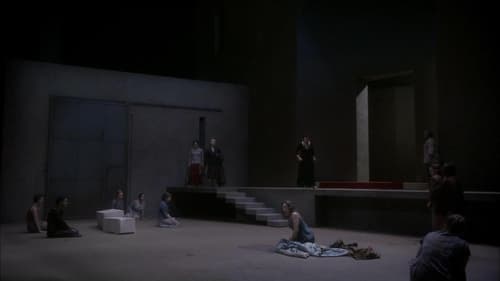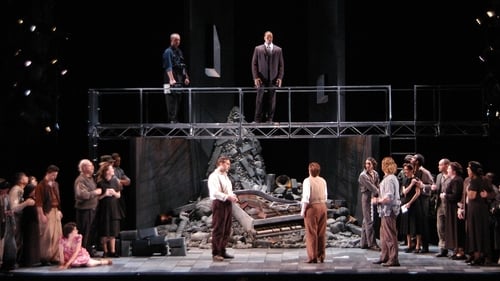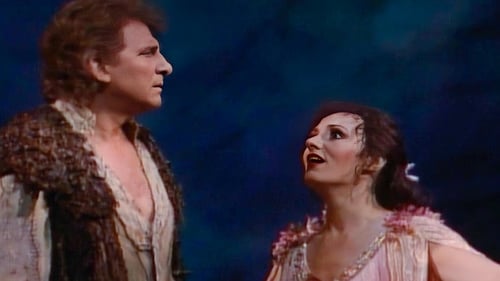
Waltraud Meier
출생 : 1956-01-09, Würzburg, Germany
약력
Grammy Award winner Waltraud Meier is a German dramatic soprano and mezzo-soprano singer. She is particularly known for her Wagnerian roles as Kundry, Isolde, Ortrud, Venus, Fricka, and Sieglinde, but has also had success in the French and Italian repertoire appearing as Eboli, Amneris, Carmen, and Santuzza. She resides in Munich.
Meier has performed in the world's famed opera houses (including La Scala, Covent Garden, Metropolitan Opera, the Vienna State Opera, the Bavarian State Opera, Lyric Opera of Chicago, and Colón Theater). She performed Wagner at the Mecca of Wagner performance, the Bayreuth Festspielhaus. She has performed under the batons of conductors including Riccardo Muti, Daniel Barenboim, Claudio Abbado, James Levine, Lorin Maazel, Zubin Mehta, and Giuseppe Sinopoli. Waltraud Meier was born in Würzburg, Germany. She sang in various choral groups during her younger years. Upon finishing her secondary education, she began graduate studies in English and Romance Languages while also taking voice lessons. She studied singing with Professor Dietger Jacob. In 1976, she decided to concentrate on a singing career and soon thereafter debuted at the Würzburg Opera as Lola in Cavalleria rusticana. Over the next several years she performed regularly at the opera house in Mannheim (1976–78). She resides in Germany.

Ortrud
After Tristan und Isolde (2016), Parsifal (2017) and Die Meistersinger von Nürnberg (2018) this is the fourth installment of the exclusive, multiyear partnership between Deutsche Grammophon and the Bayreuth Festival, in which the Yellow Label is the exclusive audiovisual partner of the mythical Wagner festival, releasing each edition's new production on Blu-ray.
This year, we are proud to release on Blu-ray the celebrated production of Lohengrin which was premiered on 25 July 2018, featuring an illustrious cast including Piotr Beczala and Anja Harteros in their house debuts, as well as the acclaimed return of Waltraud Meier to the Bayreuth Festival.
The New York Times praised Piotr Beczala’s Lohengrin as “outstanding”, Anja Harteros [making] her impressive Bayreuth debut” as Elsa, and Ortrud “played with dominant presence by the incomparable Waltraud Meier”.

Klytaemnestra
The great singing actress Nina Stemme gives a heart-wrenching performance in the title role of Strauss’s blazing one-act drama, adapted from the ancient Greek myth. Patrice Chéreau’s acclaimed production—the last staging he worked on before his death in 2013—also stars Waltraud Meier as Klytämnestra, Elektra’s nightmare-haunted mother, Adrianne Pieczonka as Chrysothemis, her sister, and Eric Owens as Orest, their brother, whose return home brings their family story to a terrifying climax. Esa-Pekka Salonen conducts the monumental and highly influential score.

Waltraute/Zweite Norn
Götterdämmerung, the final instalment of Wagner’s Ring of the Nibelung, is a story of human passions. Two essentially benevolent creatures, involved with and possibly doomed by their traffic with the gods, find treachery and evil in the world of the humans, and are ruined by the dark side of humanity. Iréne Theorin, acclaimed worldwide for her portrayal of Wagner’s heroines, stars as Brünnhilde opposite Lance Ryan, who continues his radiant portrayal of the tragic hero Siegfried. The strong cast also includes Mikhail Petrenko as the dark antagonist Hagen and Johannes Martin Kränzle, who once again shines as his father Alberich. Waltraud Meier has a memorable appearance as Brünnhilde’s sister Waltraute. With this 2013 recording of Götterdämmerung, the musically and visually compelling Scala Ring Cycle by Daniel Barenboim and Guy Cassiers was completed and proved to be one of the highlights of the Richard Wagner bicentenary.

Sieglinde
Richard Wagner called Die Walküre the “first evening” of the Ring of the Nibelung; he called Das Rheingold the prologue or Vorabend. Musically and dramatically, we are introduced to a radically new and different world when the opening bars of Die Walküre resound. A fully developed orchestral palette of Leitmotivs paints a wild storm scene, and the curtain rises on a modest dwelling: a fully human scene that has nothing to do with the gods, dwarves and nymphs of Das Rheingold. At the same time, however, the way Die Walküre portrays radical beginnings reveals some telling reminiscences of the unfolding of Das Rheingold. Die Walküre is exciting and deeply feeling drama.

Klytämnestra
Last production staged by Patrice Chéreau, this Elektra will remain as the main and most striking lyrical event of these last years in Aix-en-Provence. This production is leaded by three amazing singers: the German soprano Evelyn Herlitzius gave a tremendous, never-to-be-forgotten account of the title role, Waltraud Meier portrays a human and chilling Clytemnestra and Adrianne Pieczonka is a fantastic Chrysothemis. Everyone's loneliness and intimate struggles are Patrice Chéreau's favorites theatrical themes. With Esa-Pekka Salonen conducting the Orchestre de Paris, this production of Elektra becomes an unforgettable experience.

Waltraute
The last of the four music dramas in Richard Wagner's Der Ring des Nibelungen. On the rock of Brünnhilde the three Norns weave fate. Valhalla must burn, bringing an end to the gods. Siegfried acquires Brünnhilde’s strength as a Valkyrie. He gives her his ring, and she gives him Grane, her horse. Hagen urges his half-brother Gunther to marry Brünnhilde, although she is fated to be the wife of Siegfried, who is tricked into marrying their sister, Gutrune. Brünnhilde curses Siegfried and tells Hagen he can be wounded only from the back. Hagen pierces Siegfried’s back and mortally wounds him. Siegfried's body is brought back, to Gutrune's distress. Gunther and Hagen fight and the former is killed, but the ring cannot be taken from Siegfried's body. Brünnhilde orders a pyre to be raised and rides into it on Grane, wearing the ring, which will return, on her death, to the Rhinemaidens, who drag Hagen down to the depths of the river. Valhalla finally burns.

Waltraude
Ring Cycle, pt 4. Siegfried is drugged and tricked into kidnapping his wife, since she has the Ring now. More double-crossings, Siegfried ends up dead. Brunnhilde has had enough of this, tosses the Ring into the river and torches the place.

Klytämnestra
The Nikolaus Lehnhoff production of Richard Strauss's "Elektra", recorded live at the Salzburger Festspiele in 2010. Iréne Theorin stars as Elektra, with Eva-Maria Westbroek as Chrysothemis, Waltraud Meier as Klytämnestra, Robert Gambill as Aegisth, and René Pape as Orest. Daniele Gatti conducts the Wiener Philharmoniker.

Venus

Self
Waltraud Meier is “La Wagnerissima”, the queen of Wagner’s repertoire. In her very personal account “I follow a voice within me”, we enter her world and learn about her motivations, aspirations, and her joyful way of pursuing them. In addition to personal insights, this truly ingenious portrait presents Waltraud Meier on stage and in rehearsal in her most celebrated Wagner roles and as an interpreter of Mahler’s Lieder. It becomes clear how she coined today’s musical world when other great musicians such as Daniel Barenboim or Plácido Domingo speak about her and her work. This beautiful portrait of one of the greatest interpreters of our time is rounded off with a powerful recording of Mahler’s “Lied von der Erde”.

Isolde
The legendary Patrice Chéreau (Bayreuth Jahrhundertring, Queen Margot, Intimacy) directed this production of Richard Wagner's psychological music drama Tristan und Isolde at the Teatro alla Scala in 2007. It stars Ian Storey, Waltraud Meier, Matti Salminen, Gerd Grochowski and Michelle DeYoung; the Orchestra and Chorus of the Teatro Alla Scala provide musical support, under the baton of Daniel Barenboim.

Leonore
Two years prior to the opening scene, the nobleman Florestan has exposed or attempted to expose certain crimes of the nobleman Pizarro. In revenge, Pizarro has secretly imprisoned Florestan in the prison over which Pizarro is governor. The jailer of the prison, Rocco, has a daughter, Marzelline, and a servant (or assistant), Jaquino. Florestan's wife, Leonore, came to Rocco's door dressed as a boy seeking employment, and Rocco hired her. On orders, Rocco has been giving Florestan diminishing rations until he is nearly starved to death. Place: A Spanish state prison, a few miles from Seville Time: Late 18th century

Ortrud
At the Festspielhaus Baden-Baden, the stage director Nikolaus Lehnhoff signs a remarkable production of Wagner's LOHENGRIN, the third of the German composer's main operas. This production stars an incredible cast, including Hans-Peter König, Klaus Florian Vogt, Solveig Kringelborn, Tom Fox and Waltraud Meier, accompanied by the Deutsches Symphonie-Orchester Berlin under Kent Nagano's baton.

Kundry
Recorded live at the Festspielhaus, Baden-Baden, Germany, August 2004. Kent Nagano, conductor. Nikolaus Lehnhoff, stage director.

Peter Konwitschny's new production on the première stage in Munich gives it a new, optimistic interpretation. At the opening of the Munich Opera Festival 1998, Tristan und Isolde was staged in what is now the ninth new production at the Bavarian State Opera since its world première. Director Peter Konwitschny worked together with stage and costume designer Johannes Leiacker a team already well known in Munich for its much-respected Parsifal. Zubin Mehta conducted, shortly before being called to be General Music Director at the Bavarian State Opera. The title parts were interpreted by the American tenor Jon Frederic West, widely known for his Wagner-roles and Waltraud Meier, one of the greatest Isoldes of our time.

Carmen
Live performance from the Metropolitan Opera, 25 March 1997.

Self
This film was prepared as a introduction to a series of opera broadcasts on German television. It depicts the behind-the-scenes manoeuvrings in preparation for the annual opera festival in Bayreuth.

Santuzza
A staging of the opera by Mascagni.

Herself
This tribute to James Levine, first shown on PBS, was only part of that glorious evening. Here we have the whole performance, up to three hours. I could not stop watching these discs. Let me say this much; Levine has done for the Met, making it the premier opera house in the world, what Karajan did with the Berlin, making it one of the finest orchestras ever. So sit back and enjoy.

La Princesse Eboli
Luc Bondy's 1996 production of Don Carlos was staged, recorded and filmed at the Chatelet in Paris. These seven performances were blessed with an all-star cast, loaded with important singers either starting their careers (Roberto Alagna) or at the height of their dramatic powers (Karita Mattila, Jose Van Dam.)

Isolde
The Bayreuth Festival Opera House mounted this production of Richard Wagner's 1865 opera Tristan und Isolde as part of the Bayreuther Festspiele. Staged by Heiner Müller, it stars Siegfried Jerusalem, Waltraud Meier, Poul Elming and Uta Priew, and features musical accompaniment by The Orchestra and Chorus of the Bayreuther Festspiele.

Marie
Franz Woyzeck, a lowly soldier stationed in a mid-nineteenth century provincial German town, is the father of an illegitimate child by his mistress Marie.

Kundry
The Met production easily has the most beautiful staging, designed by Otto Schenck, who also produced the fabulous set for the Met's previous Ring cycle. Kurt Moll is a wonderful Gurnemanz, but compared to his studio recording under Karajan a decade earlier it has lost some of its original velvety body and luster. As Parsifal, Jerusalem is starting to show some wear and tear on his voice at the Met in 1992 as opposed to his prime form at Bayreuth in 1981, but is still quite good; only Placido Domingo could compete with him in the role at that time.

Waltraude
THIRD DAY OF THE RING CYCLE. Günter, the lord of the Rhine people, gives Siegfried a love potion that causes Siegfried to forget Brünnhilde and fall in love with Günter's sister Gutrane. Siegfried has given Brünnhilde the Ring as a token of their love, but her Valkyrie sister urges her to destroy it, because their father Wotan has lost his spear and power and is hiding out in Valhalla. Instead, Brünnhilde keeps it, and under the influence of the potion, Siegfried steals it from her. Enraged, Brünnhilde helps Alberich's son murder Siegfried, but Siegfried's memory returns, and he dies thinking of Brünnhilde. Brünnhilde repents and orders a funeral pyre to be built. She rides into the fire herself, and the Rhinemaidens get the ring back. The story closes with flames flickering about Valhalla in the background. Filmed at the Bayreuth Festspielhaus in June & July 1991.

herself, Kundry
A documentary about Nikolaus Lehnhoff's 2004 production of Wagner's last opera, Parsifal, at the Festspielhaus Baden-Baden. Interviews, behind-the-scenes footage and clips of the live performances provide a documentary analysis of the opera on the quest for the holy grail.










